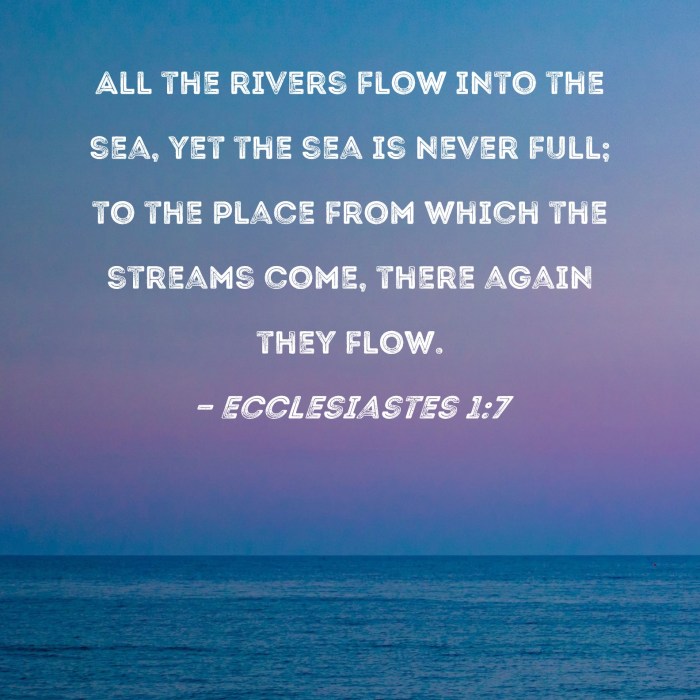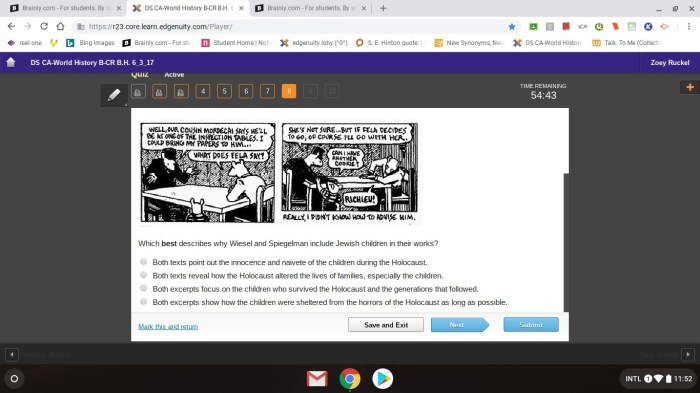Elie Wiesel’s All Rivers Run to the Sea is a literary masterpiece that delves into the profound complexities of the Holocaust and its lasting impact on human existence. Through the lens of Wiesel’s evocative prose, this novel explores themes of identity, memory, and the enduring power of hope amidst unimaginable suffering.
Wiesel’s unique writing style, characterized by symbolism, allegory, and vivid imagery, transports readers into the heart of the Holocaust’s horrors, forcing them to confront the depths of human cruelty and resilience.
Elie Wiesel’s Writing Style

Elie Wiesel’s writing style in “All Rivers Run to the Sea” is characterized by its lyrical and evocative language, its use of symbolism and allegory, and its exploration of complex themes.
Symbolism, Elie wiesel’s all rivers run to the sea is a
Wiesel employs symbolism throughout the novel to convey the complexities of the Holocaust experience. For example, the river symbolizes the passage of time and the flow of life, while the sea represents the unknown and the infinite.
Imagery
Wiesel’s vivid imagery brings the horrors of the Holocaust to life. He uses graphic descriptions of violence, suffering, and death to convey the physical and psychological toll the Holocaust took on its victims.
Allegory
The novel also employs allegory to explore the larger themes of good and evil, faith and doubt, and the search for meaning in a world shattered by tragedy.
Historical Context

The Holocaust serves as the historical backdrop of “All Rivers Run to the Sea.” Wiesel’s experiences as a survivor of the Holocaust profoundly shaped his writing, and the novel reflects the broader historical context of the 20th century.
The Holocaust
The Holocaust was a systematic genocide perpetrated by Nazi Germany against the Jewish people during World War II. Six million Jews were murdered in concentration camps and ghettos across Europe.
Wiesel’s Experiences
Wiesel was deported to Auschwitz at the age of 15, where he witnessed firsthand the horrors of the Holocaust. His experiences left an indelible mark on his writing, and he dedicated his life to bearing witness to the Holocaust.
20th Century History
The novel also reflects the broader historical context of the 20th century, including the rise of totalitarianism, the Cold War, and the ongoing struggle for human rights.
Q&A: Elie Wiesel’s All Rivers Run To The Sea Is A
What is the significance of the novel’s title, All Rivers Run to the Sea?
The title suggests the interconnectedness of all human experiences, both joyful and tragic, and their eventual convergence in the vastness of time and eternity.
How does Wiesel’s use of symbolism contribute to the novel’s impact?
Wiesel employs symbols such as water, fire, and darkness to evoke the emotional and psychological landscapes of his characters, enhancing the novel’s emotional resonance.
What is the role of memory in All Rivers Run to the Sea?
Memory serves as both a source of trauma and a catalyst for healing, as characters grapple with the weight of the past while seeking solace in the present.

